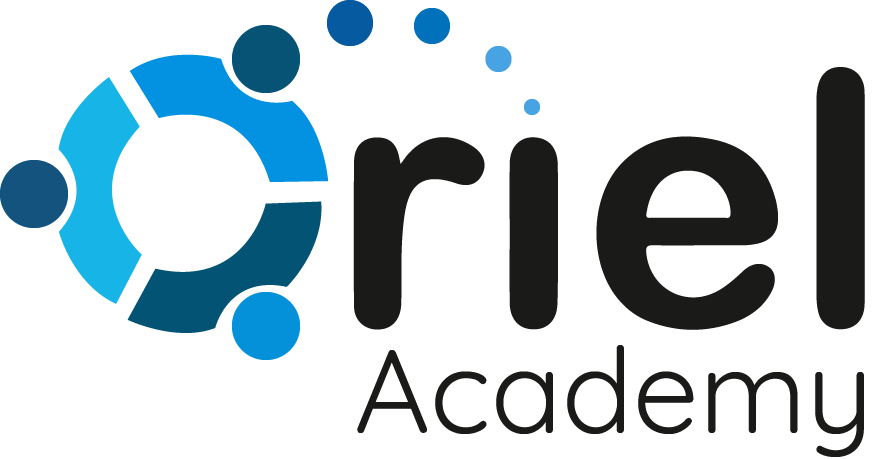The question of whether hard or soft skills are more critical often occurs due to today’s rapidly changing labor market. But the matter of fact is, both are important. The knowledge of how to balance both, in our view at Oriel Academy, is the key to career success.
Merely possessing technical skills or interpersonal skills is not enough to make a meaningful difference in the workplace; you must possess both. This blog will clarify the distinction between hard and soft skills, their significance, and how they complement each other to drive your career direction.
What Are Hard Skills?
Hard skills are trainable skills, which can be easily learned through training, education, or hands-on experience. These are technical skills that are usually needed to carry out certain job functions and are quantifiable. For instance:
- Coding and Programming: Having the ability to code in languages such as Python or Java.
- Data Analysis: Having the ability to use tools such as Excel, Tableau, or SQL to analyze and manipulate data.
- Project Management: Understanding how to plan, carry out, and track projects to get them done on time.
- Engineering Skills: Knowing how to design systems, structures, or machinery using software like CAD.
Hard skills are usually acquired through formal schooling, training sessions, or work experience. These are necessary skills for performing the unique functions according to your position and tend to be tested or certified in some way. Like, a software programmer must be familiar with coding in several programming languages. Without that technical expertise, they will not be able to perform their duties, regardless of however good they are at communication.
What Are Soft Skills?
Soft skills are more about how you get along with others and navigate in the workplace. These are less task-oriented and more about how you communicate, work with others, and resolve problems. They are more difficult to quantify but just as vital to creating successful relationships and a positive work environment. A few examples include:
- Communication: The ability to express your thoughts clearly and attentively hear others out.
- Problem-Solving: Thinking creatively and developing innovative solutions to problems.
- Teamwork: Working with others, even when you disagree, to accomplish a task.
- Time Management: Organizing your time and prioritizing your tasks so you can get everything done on time.
- Leadership: Inspiring others, making them better, and maintaining a high morale.
Soft skills are usually what distinguish a fantastic employee from the rest of the pack. Hard skills will get you an interview, but soft skills will enable you to build relationships, collaborate with your colleagues, and survive the stresses of the workplace. Suppose a project manager is great at planning and managing projects but has no skill at communicating with the team or resolving conflicts. Regardless of how strong their technical skills are, their team may fail, and projects may falter. That’s where soft skills fit in and help you thrive, irrespective of whether you have hard skills or not.
Hard Skills vs. Soft Skills: Which One Is More Important?
The truth is, to thrive and survive, both hard skills and soft skills are crucial—but the relevance can vary with the job, the industry, and the company culture. Let’s separate them out:
- Industry-Specific Needs
- Tech Careers: Hard skills can sometimes be front and center in professions such as technology, engineering, and data analytics. Those fields demand special technical skills to complete tasks in your job, as there is more emphasis towards specialization in tools, languages, or systems utilized. For instance, a programmer would need proficiency with coding languages like Python and JavaScript.
- Customer-Facing Careers: In career positions that entail you interacting with customers or clients, like in sales, marketing, or customer service, your soft skills will be absolutely invaluable. Communication skills, empathy, and being able to think critically and be on your feet while solving a problem are essentials in creating bonds and finding solutions to conflicts effectively.
- Leadership and Management: If you’re a leader or a manager, a balance of both hard skills and soft skills is a must. Sure, you would want to know project management or know how to analyze stuff, but you also need to learn to motivate and encourage your employees, resolve disagreements, and make decisions that benefit the group as well.
- The Role of Technology and Automation
As technology develops, more of the work that used to require technical competencies is increasingly being automated. For instance, machines can process repetitive data input, and computers can respond to simple customer questions. Therefore, while hard skills remain crucial, being flexible and thinking critically matters more than ever.
Consider the example of a data analyst; while they may need to know how to use software such as Python or Excel, they also have to be able to read the data and explain it to non-technical individuals in a way that can drive action. That’s where soft skills such as communication and problem-solving enter the picture and are an important skill in today’s highly tech world.
- Soft Skills in Remote and Hybrid Work
With the rise of remote and hybrid work, the value of soft skills has skyrocketed. As now people are working more from home and virtually. Teams are interconnected with each other from different locations from across the world; hence, being able to communicate clearly and manage your time effectively has become even more crucial. In a remote setting, it’s easy for miscommunication to occur, and it can be harder to build trust and camaraderie when you’re not physically present. Soft skills such as empathy, communication, and emotional intelligence are the key to building a cohesive team, regardless of location.
Conclusion: Striking the Right Balance
Success today is not so much about understanding how to get the job done—it’s more about how you get along with people and how you learn to do new things. At Oriel Academy, we want you to keep developing both your hard skills and soft skills. Hard skills are important to get the work done, but soft skills are critical to get the job done, particularly in group-based, dynamic environments.
Hence, it’s important to continuously sharpen your technical knowledge but also focus on enhancing the way you communicate, work with others, and lead. The secret to long-term career success is really the equilibrium between technical competence and those interpersonal skills that enable you to succeed in the workplace.





